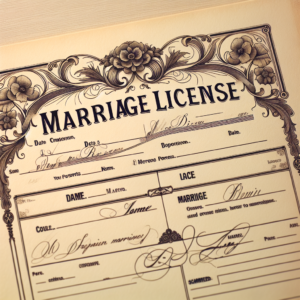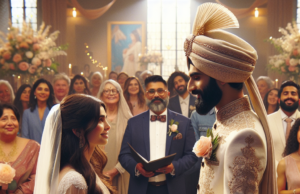Unveiling the Truth: The Alarming Reality of Legal Marriage Age Laws

In recent years, the issue of legal marriage age has garnered increasing attention from policymakers, activists, and the general public. With millions of children and adolescents around the world entering into marriage before reaching adulthood, the implications of these laws extend beyond individual lives to affect entire communities and nations. This article aims to unveil the alarming reality of legal marriage age laws, exploring their historical evolution, the consequences of early marriage, regional disparities, advocacy efforts, and the necessary reforms to protect minors.
Understanding the Legal Marriage Age: A Global Perspective on Current Laws
The legal marriage age varies significantly across the globe, reflecting cultural, religious, and social norms. In many countries, the minimum age for marriage is set at 18, aligning with the age of majority. However, exceptions abound, with some nations permitting marriage at younger ages, often with parental consent or judicial approval. For instance, in countries like Yemen and Afghanistan, girls can marry as young as 9 or 10, while in others, such as the United States, state laws allow marriage at 16 or even younger with parental consent. This disparity raises critical questions about the protection of minors and the societal implications of allowing early marriage.
Historical Context: How Marriage Age Laws Have Evolved Over Time
Marriage age laws have undergone significant transformations throughout history, influenced by changing societal values, economic conditions, and legal frameworks. In many ancient societies, marriages were often arranged for economic or political reasons, with little regard for the age of the individuals involved. The 19th and 20th centuries saw a gradual shift towards establishing legal minimum ages for marriage, primarily as a response to the growing recognition of individual rights and the need to protect children from exploitation. However, despite these advancements, many countries still lag in enforcing or updating their marriage laws, leaving vulnerable populations at risk.
The Impact of Early Marriage: Social, Economic, and Health Consequences
Early marriage has profound social, economic, and health consequences for individuals and communities. Young brides often face a range of challenges, including limited educational opportunities, increased risk of domestic violence, and health complications related to early pregnancy. Studies have shown that girls who marry before the age of 18 are more likely to experience poverty and social isolation, perpetuating cycles of disadvantage. Additionally, early marriage can have detrimental effects on public health, contributing to higher rates of maternal and infant mortality, as well as the spread of sexually transmitted infections, including HIV.
Regional Disparities: A Closer Look at Marriage Age Laws Worldwide
The legal marriage age is not only a matter of national law but also reflects regional disparities within countries. In some areas, cultural practices and traditions may override legal stipulations, leading to widespread early marriages despite existing laws. For example, in parts of sub-Saharan Africa and South Asia, customary practices often allow for marriages at much younger ages, even when national laws set higher minimums. This inconsistency highlights the need for a comprehensive approach to reform that considers local customs while prioritizing the rights and well-being of minors.
Advocacy and Reform: Efforts to Change Legal Marriage Age Regulations
In response to the alarming rates of early marriage, numerous advocacy groups and international organizations have mobilized to push for reforms in marriage age laws. Campaigns aimed at raising awareness about the negative impacts of early marriage have gained traction, with calls for governments to enforce stricter regulations and eliminate loopholes that allow for exceptions. Notable initiatives, such as the United Nations’ Sustainable Development Goals, emphasize the importance of ending child marriage as a critical step towards achieving gender equality and improving health outcomes. These efforts have led to some progress, but significant challenges remain in many regions.
The Path Forward: Ensuring Protection for Minors in Marriage Legislation
To effectively address the issue of early marriage, a multi-faceted approach is essential. This includes not only raising the legal marriage age but also implementing comprehensive education and awareness programs that empower young people, particularly girls, to make informed choices about their futures. Governments must work in collaboration with local communities to challenge cultural norms that perpetuate early marriage and to provide support systems for those at risk. Additionally, legal frameworks should be strengthened to ensure that violations of marriage age laws are met with appropriate penalties, thereby reinforcing the commitment to protecting minors from exploitation.
The alarming reality of legal marriage age laws underscores the urgent need for reform and advocacy to protect vulnerable populations, particularly minors. As societies continue to evolve, it is imperative that legal frameworks reflect the values of equality, protection, and empowerment. By addressing the complexities of early marriage and working towards comprehensive solutions, we can create a future where all individuals have the opportunity to thrive, free from the constraints of early marital obligations. The path forward requires collective action, commitment, and a steadfast dedication to safeguarding the rights of the youngest members of our society.






 Statute of Frauds Defined:
Statute of Frauds Defined:
 There are many factors that can effect the legality of a prenuptial agreement. Couples should consult their respective attorneys to go over state and federal laws that may apply to their circumstance. In addition, if they get married in another country, they will want to be sure that those laws do not conflict with their local laws.
There are many factors that can effect the legality of a prenuptial agreement. Couples should consult their respective attorneys to go over state and federal laws that may apply to their circumstance. In addition, if they get married in another country, they will want to be sure that those laws do not conflict with their local laws. 






